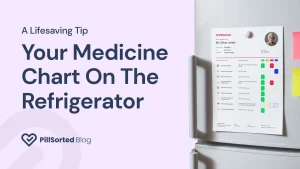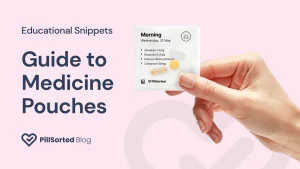What to Eat to Boost Your Iron Levels
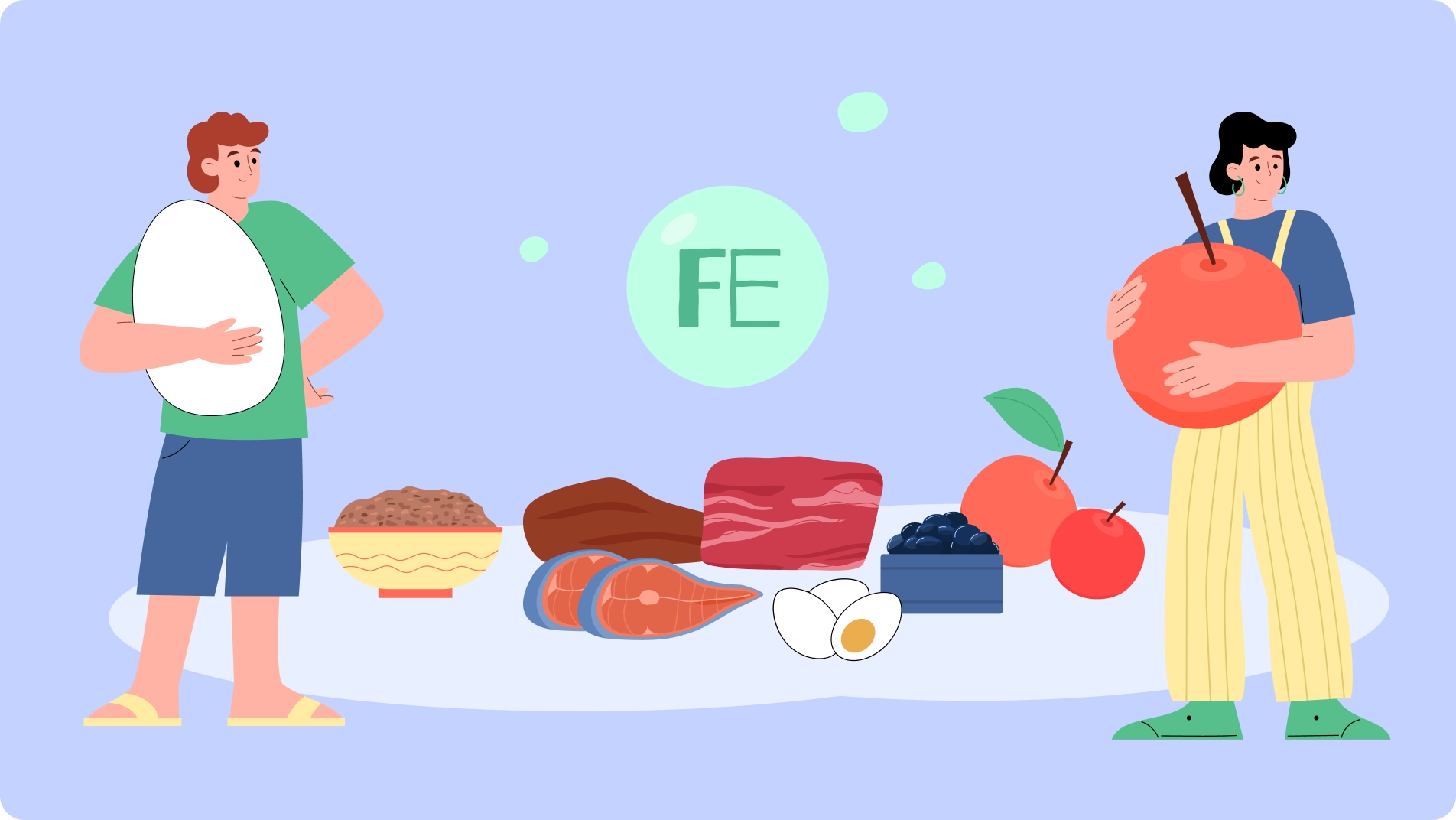
Iron is a vital element for human life. So there are many reasons you may want to give your iron levels a boost. You may be a vegetarian monitoring your daily intake or an athlete trying to increase red blood cell production. If you have iron deficiency anaemia , knowing how to boost your iron levels is a must.
This article takes a deeper look at what to eat (and not to eat) to increase your iron levels and combat this global health problem and common medical condition. So, if you’ve been diagnosed with anaemia or your GP has determined that the iron levels in your blood count are too low, this article is for you.
In this post:
- Food to eat—natural sources of iron
- Food to avoid—that interfere with iron absorption
- Vitamin C-to help iron absorption
- Iron supplements & OTC medicine toolkit
- Iron Dos & Dont’s
- Main takeaways
- References
Foods to eat—natural sources of iron
One of the best way to make sure you get enough iron is to eat iron-rich foods, including:
- Lean meats such as poultry, fish, and lean cuts of beef or pork (you may hear these referred to as heme foods, and they are the easiest for your intestine to absorb iron from)
- Leafy greens like spinach, kale, collard greens, and Swiss chard (you may hear these referred to as nonheme foods)
- Beans & legumes including lentils, chickpeas, black beans, and kidney beans
- Iron fortified cereals, bread, pasta, and rice
- Nuts & seeds such as almonds, sesame seeds and especially pumpkin seeds
- Iron fortified plant-based milk alternatives such as almond milk, soy milk, or oat milk
- Dried fruits such as apricots, raisins, prunes, and figs
Foods to avoid—that may interfere with iron absorption
If you have anemia, especially iron-deficiency anemia, you may want to avoid or cut back on foods that interfere with iron absorption or eat them at a different time of day than when you take your iron supplements or iron-rich meals. Remember not to skip meals.
- High-calcium foods such as dairy (milk, cheese, yogurt) — these can be a healthy part of your diet, but studies have shown that calcium can inhibit iron absorption, so just don’t consume them at the same time as your supplement.
- Coffee & Tea — it’s the tannins in these beverages that inhibit iron absorption, so best to avoid coffee and tea around the time you take any supplements. Try to choose herbal teas over traditional teas.
- High-fiber foods — while fiber can be good for you it can inhibit iron absorption so keep eating your fiber, but best to avoid high-fiber foods around the time you take any supplements.
Vitamin C—to help with iron absorption
Pairing iron-rich foods with vitamin C-rich foods can enhance iron absorption. Try adding these fruits and veggies to your diet:
- Citrus fruits such as oranges, grapefruits, lemons, and limes (consuming them whole is preferred, but drinking their juices, especially after taking an iron supplement is okay)
- Berries such as strawberries, raspberries, blueberries, blackberries
- Kiwifruit
- Bell Peppers (especially red)
- Tomatoes
- Leafy greens such as kale, spinach, Swiss chard
- Broccoli (this super food contains both high levels of iron and vitamin C)
- Brussels sprouts
- Guava
- Papaya
- Pineapple
- Vitamin C fortified foods such as certain breakfast cereals, fruit juices
Water—to help with iron absorption
Drink plenty of water throughout the day. Many people don’t realize it, but drinking plenty of fluids (but remember to avoid excessive coffee, tea or alcohol) helps the body absorb iron and it’s great for your overall health.
Iron Supplements
Most people with iron deficiency anaemia are asked to take iron supplements for 6 months to help ensure they boost their iron levels. Many of these are available over-the-counter, but you should consult with your healthcare provider before taking them. And be sure to adhere to the correct dosage.

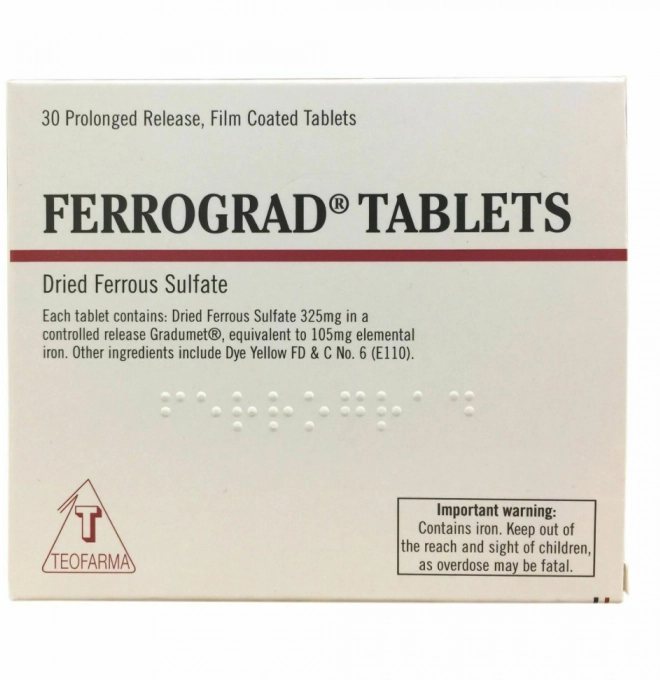
Ferrograd 325mg – 30 Tablets
Ferrograd tablets contains the active ingredient ferrous sulfate which is used to prevent and treat iron deficiency anaemia. After one week of taking ferrous sulfate most people will start to feel better, however, it may take up to four weeks for it to work to its full potential. Those who are pregnant, have heavy periods, eat unbalanced diets, or have intestinal issues like Crohn’s disease or coeliac disease are more likely to suffer from iron deficiency anaemia.
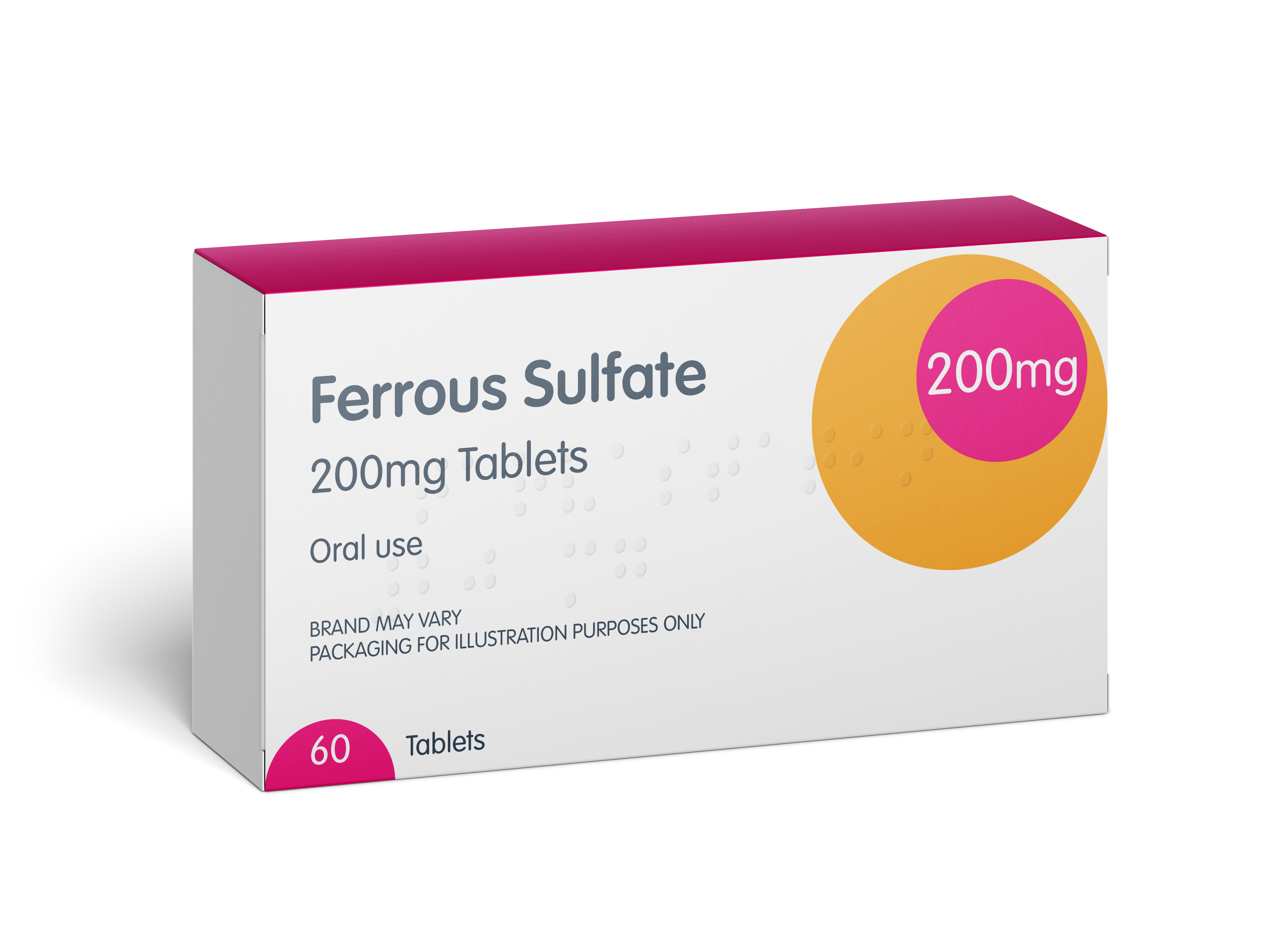
Ferrous Sulfate 200mg – 60 Tablets
Ferrous Sulfate 200mg tablets are a supplement used to treat or prevent iron deficiency anaemia.
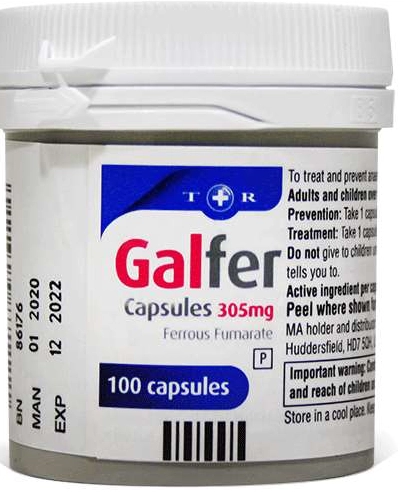
Galfer Ferrous Fumarate 305mg – 100 Capsules
Galfer 305mg capsules may be used to treat and prevent iron deficiency anaemia.
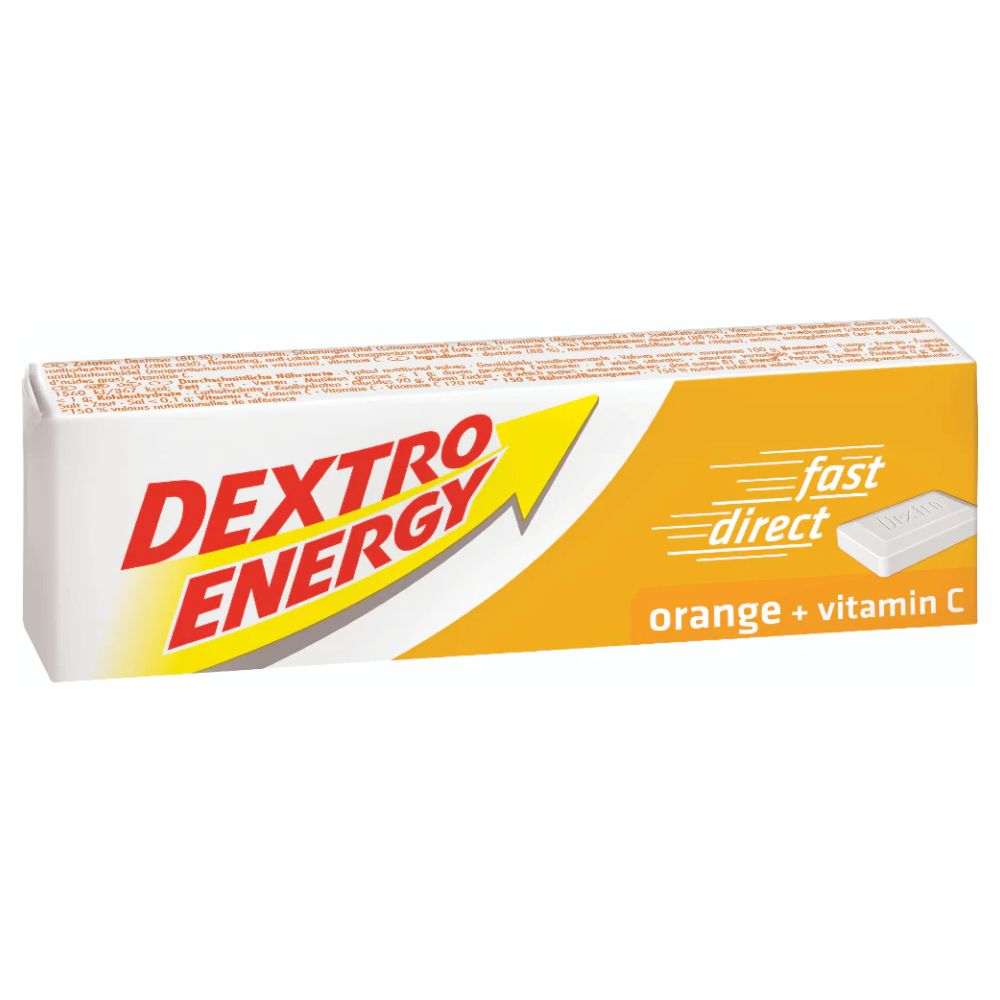
Dextro Energy Tablets Orange – 47g
Dextro Energy Tablets are an easy and convenient way to give yourself a boost when you need it. These individually wrapped tablets are great for those with an active lifestyle.
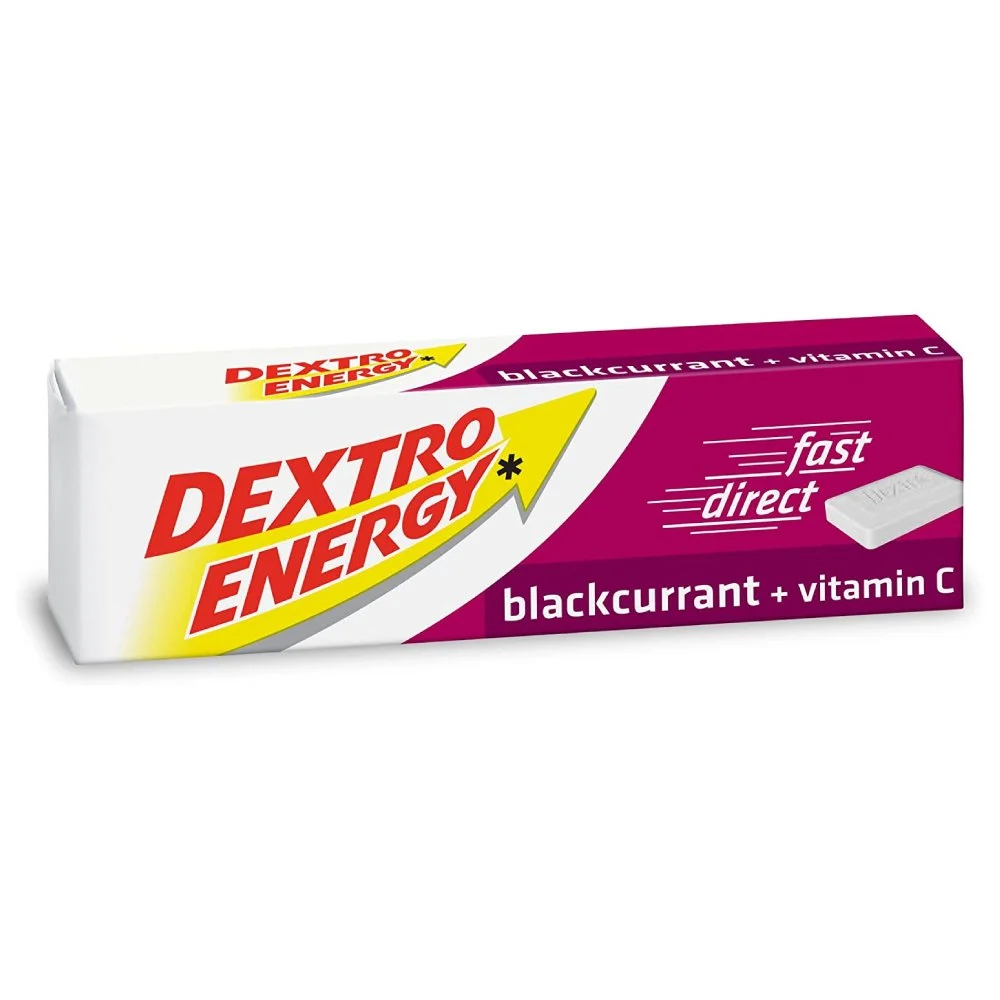
Dextro Energy Tablets Blackcurrant – 47g
Dextro Energy Tablets are an easy and convenient way to give yourself a boost when you need it. These individually wrapped tablets are great for those with an active lifestyle.
Iron Dos & Don’ts
| Do | Don’t |
|---|---|
| Consume iron-rich foods such as lean meats and dark leafy vegetables | Don’t consume calcium-rich food during meals such as dairy products |
| Combine iron-rich foods and supplements with vitamin C like citrus fruits, strawberries, and bell peppers | Don’t overdo eating high-fiber foods. Reduce their intake and consume them a few hours after consuming iron-rich foods or supplements. |
| Consume fortified foods such as enriched cereals, breads or pastas | Don’t drink too much tea, coffee, or alcohol (opt for herbal teas that contain less tannins) |
| Consider supplements (follow dosage instructions carefully) | Don’t skip meals |
| Drink plenty of water | Don’t take supplements or alter your diet drastically without speaking to a medical provider first |
Main takeaways
- Eat iron-rich food such as lean meats, seafood, fortified cereals and dark leafy greens.
- Pair iron-rich food with Vitamin C and drink plenty of water to enhance iron absorption
- Avoid food and beverages that can hinder iron absorptions such as dairy, fiber, coffee, tea and alcohol.
- Take iron supplements under the advise and supervision of your health care provider
References
Piskin, E. et al. (2022). Iron Absorption: Factors, Limitations, and Improvement Methods
Lönnerdal, B. (2010). Calcium and iron absorption–mechanisms and public health relevance
Hooda, J. et al. (2014). Heme, an Essential Nutrient from Dietary Proteins, Critically Impacts Diverse Physiological and Pathological Processes
PillSorted
PillSorted is a full service pharmacy that delivers trusted pharmacy products, over-the counter medications, and the prescriptions your doctor recommends, directly to your door. Your PillSorted pharmacist is happy to answer your questions about weight loss and potential treatment options at 0333 4050380 or help@pillsorted.com.
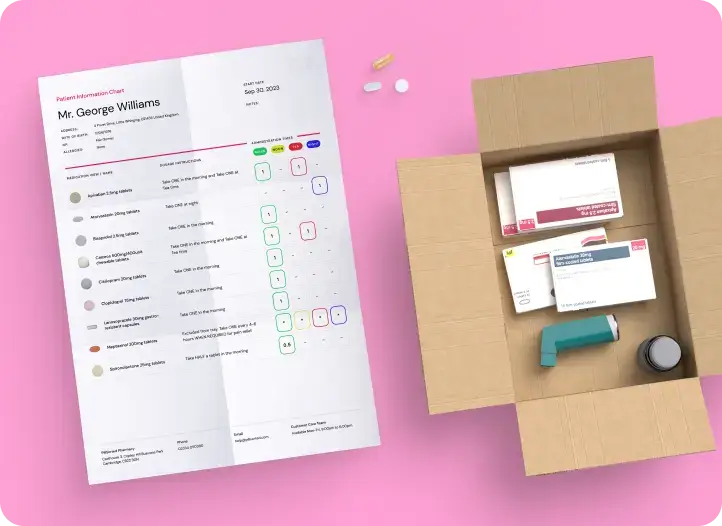
All third-party trademarks (including logos and icons) referenced by PillSorted remain the property of their respective owners. Unless specifically identified as such, PillSorted’s use of third party trademarks does not indicate or imply any relationship, sponsorship or endorsement between PillSorted and the owners of these trademarks.





















